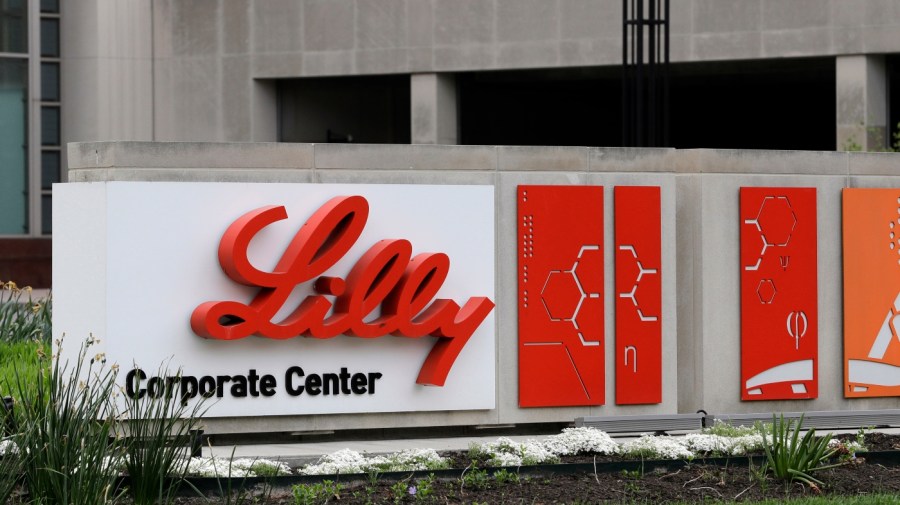Eli Lilly’s experimental oral weight loss pill helped patients lose about 12 percent of their body weight on average in a late-stage trial, the company said Thursday, positive results but still less than its injectable competitors.
Lilly’s stock was down more than 14 percent on the day after the results were announced.
After 72 weeks, patients taking the highest dose of the drug, called orforglipron, lost an average of 12.4 percent of their weight, or 27.3 pounds, in a 72-week trial.
When analyzing all participants regardless of discontinuations, patients experienced weight loss of 11.2 percent.
While promising, the results are not as strong as the two injectable drugs already on the market.
Orforglipron has not been directly compared with Wegovy or Zepbound, but trials of Novo Nordisk’s Wegovy showed a 15 percent weight loss, and patients taking Lilly’s Zepbound experienced a 21 percent weight loss.
“With orforglipron, we’re working to transform obesity care by introducing a potential once-daily oral therapy that could support early intervention and long-term disease management, while offering a convenient alternative to injectable treatments,” said Kenneth Custer, executive vice president and president of Lilly Cardiometabolic Health, in a statement.
The company is planning to submit orforglipron for Food and Drug Administration review by the end of the year. If approved, Lilly said it is confident in its ability to launch the drug worldwide without supply constraints.
Expectations for the drug were high after the company in April reported orforglipron helped cut blood sugar and weight in a late-stage trial of people with type 2 diabetes.
A needle-free anti-obesity drug without dietary restrictions could give Lilly a major edge over its well-established rivals, but the latest data could significantly temper that.
GLP-1s are a class of drugs that have become blockbusters for the way they help people lose weight. But they are expensive, must be refrigerated and are delivered through an injection. A daily pill version could make the drugs much more accessible.
Lilly’s pill is also a small molecule drug, so it can be more easily manufactured.
Side effects were the same as those with the injectable obesity drugs — diarrhea, indigestion, constipation, nausea and vomiting. But the trial saw a nearly 25 percent dropout rate among people taking the drug at its highest dose.
Still, CEO David Ricks told CNBC’s “Squawk Box” that the trial results were not disappointing.
“It’s right on thesis for us,” Ricks said. “The goal was to create an oral pill that was convenient and can be made at a huge scale, really, for the mass market, and had weight loss that was competitive with other single-acting GLP-1s, and that’s what we’ve achieved.”

